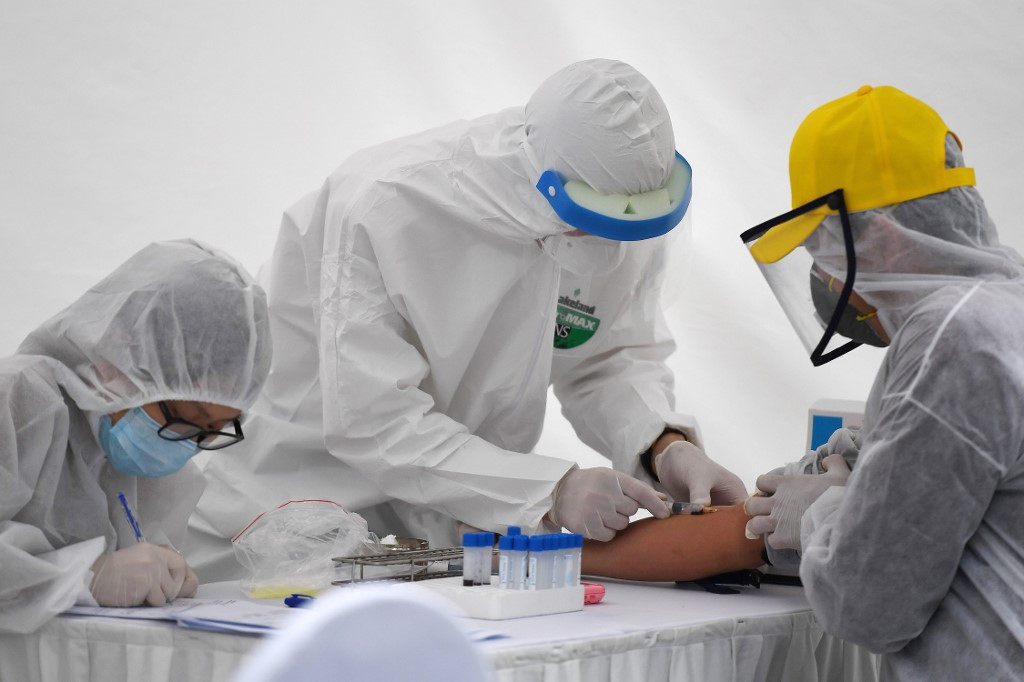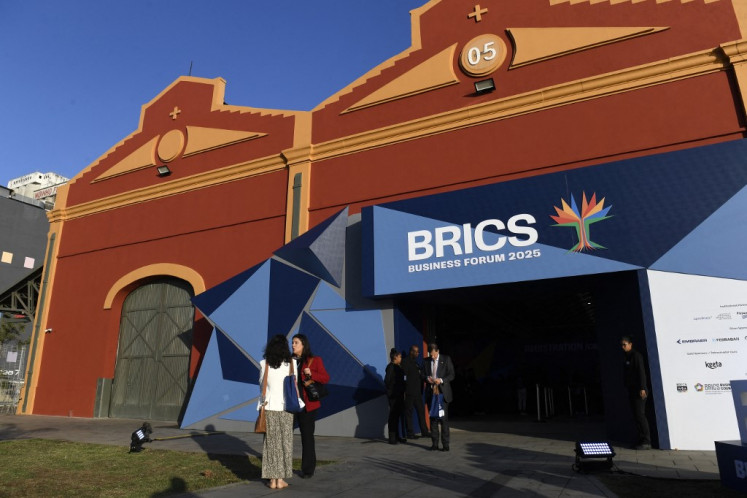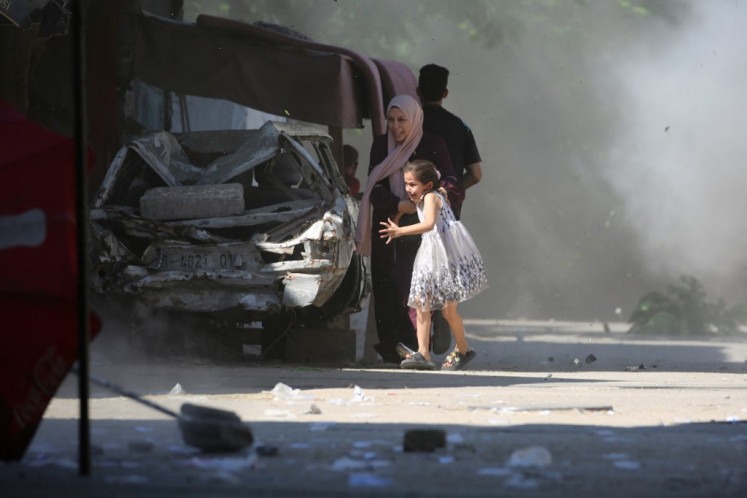Popular Reads
Top Results
Can't find what you're looking for?
View all search resultsPopular Reads
Top Results
Can't find what you're looking for?
View all search resultsIndonesia ranks among world's worst in coronavirus testing rate
Change text size
Gift Premium Articles
to Anyone
O
nly 36 in every million people are being tested for the coronavirus in Indonesia, making it the fourth worst in testing rate among countries with a 50 million population or above, pandemic data site Worldometer has revealed.
The world's fourth-most populous country of 270 million performed better than only Ethiopia, Nigeria and Bangladesh, according to the site, which has introduced a new feature showing testing rates relative to the respective country's population.
The three worst-preforming are Ethiopia, with 16 tests for every million people, Bangladesh (18), and Nigeria (19). In comparison, South Korea tests 8,996 for every million people, Singapore 6,666, and Malaysia 1,605.
Asked by The Straits Times on Monday about Indonesia's very low rate, Achmad Yurianto, a government spokesman for Covid-19 management, said: "We don't test based on the size of population, but based on contact tracing of positive cases as well as based on the visits to health facilities by people with Covid-19 symptoms."
He added that Indonesia is also doing rapid tests, but the number of such tests - and the number of any confirmation tests after this procedure - do not add to the Covid-19 national tallies.
He stressed that such rapid tests, which are not as reliable as the standard polymerase chain reaction (PCR) tests, are used only to help with early "screening" of people who may have contracted the virus.
Any close contact who is tested negative using a rapid test kit must redo the procedure after a period of time, while anyone testing positive would have to be confirmed by a PCR test.
Rapid tests are antibody tests, which determines whether a person has developed immunity to the coronavirus. These tests, however, have a limited role in diagnosis, according to experts, as it takes the body four days or longer after infection to produce antibodies, which would be too late for the purpose of quick detection and contact tracing.
Indonesia's ranking among the likes of Ethiopia comes as a surprise as the South-east Asia's largest economy has a GDP that is at least three times larger than any of the three bottom-ranked countries. Indonesia’s GDP per capita, often used as an indicator of a country’s standard of living, is at least double.
Indonesia has a GDP of USD$1.1 trillion (S$ 1.58 trillion), while Ethiopia, Bangladesh and Nigeria has a GDP of US$81 billion, US$250 billion, and US$375 billion, respectively.
Indonesia's health ministry has been widely criticised for red tape in bringing in test kits, as well as equipment to read the PCR test samples.
Recent media reports have also pointed out that the ministry's official Covid-19 death toll nationwide, currently at 209, is an understated figure contradicted by separate announcements by local governments in West Java and the Jakarta municipal government, which indicate a higher toll. This has raised questions about the health ministry's transparency and credibility in disclosing data, the local media has reported.
Jakarta, where about half of the national confirmed cases are from, issued a monthly figure on burials in the capital for March at 4,377, well above the monthly average of 2,745 burials last year and 2,774 burials the year before.
On April 2, Jakarta Governor Anies Baswedan said 401 burials were conducted following the Covid-19 protocol. The national tally shows the fatality in Jakarta as only 99.
Meanwhile, the Indonesian rupiah is among currencies that have weakened sharply against the US dollar as the coronavirus crisis deepened. The rupiah fell 15 per cent year on year on April 6, while other currencies that have seen sharp falls in the same period include the Mexican peso, which dropped 26 per cent, and the Russian ruble, 19 per cent.
Some of these countries have spent a lot of their foreign exchange reserves to intervene in the currency markets. Experts, however, have argued that uncertainty and a lack of credibility pose the greatest threat to these countries' currency values, and improving transparency in their Covid-19 data and boosting testing rates would be the most effective measures to address their currency depreciation woes.










